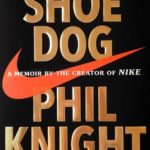Brand Book Bites from Finding My Virginity
Here are the best bites and my book review of Richard Branson’s Finding My Virginity. The New Autobiography.
– the book: Finding My Virginity, which picks up where Branson’s previous memoir, Losing My Virginity, (published in 1998) left off.
– the brains: Richard Branson, founder of Virgin Group, the conglomerate of hundreds of companies ranging from telecom to music and airlines.

– the best bits: Finding My Virginity presents 42 short chapters, each relaying a core philosophy, critical moment, and/or central character in the last two decades that Branson has been the head of Virgin Group. The anecdotes and stories seem to provide a clear window into the way Branson thinks and feels, his intuitive sense about opportunities and people, and the key influences that have contributed to his success. A few of my favorite topics and chapters include:
Branson on the Virgin Brand — Chapter 15: Four-Play
In this chapter, Branson discusses his approach to the Virgin Brand. It’s embedded in a story about his decision to acquire cable company NTL and a telecommunications company Telewest, and combine them with Virgin Mobile.
The idea was suggested by Branson’s acquaintances who were trying to sell NTL and Telewest, who pitched it as an opportunity to create the “world’s first ‘quad-play’ business” offering cable, internet, landline, and mobile communications through a single company. Although the prospect of doing something so groundbreaking and bringing the Virgin brand into the digital world enticed Branson, he was also hesitant to put his brand name on businesses that had some of the worst customer service reputations.
But he decided he could “turn them from the worst into the best,” so he agreed to a an unusual business deal that “put more value on the brand” than typical joint ventures and gave him 10.7% of the shares in the new businesses. Branson describes the approach as a way of “protecting the brand, but giving each company space to maneuver.” He says he placed Virgin veteran executives in charge of the businesses and they quickly got to work leading “the culture in the right direction,” freeing the staff fromcall scripts and allowing them to interact more naturally with customers.
He concludes, “I’ve known for a long time that the most valuable thing we have built is our brand. We’d had success using the Virgin name to rebrand companies around the world in many different sectors, but this deal saw us really utilizing the brand to its full potential. Brand power really does set us apart, allowing us to achieve scale without losing personal connection.”
Branson on Leadership — Chapter 19: Back on Track
This chapter conveys Branson’s personal involvement in running his businesses. Unfortunately the context was a Virgin Trains crash in which people were injured and killed.
After learning about the crash, Branson flew his entire family overnight from a vacation in Switzerland to where the accident happened in England. When someone asked what he was doing at the scene, Branson writes that he responded, “‘Where else would I be?…If it was my daughter or son on this train, I would like to think the owner of the business would be here.” He goes on to tell how he personally met with the victims and their families, employees, the railroad company representatives (who took complete responsibility for the accident), and the media.
It seems an unlikely response for the head of more than 200 companies with a combined revenue of approximately $20 billion at the time. But, Branson explains his hands-on approach saying, “Whatever the situation, I do feel completely responsible when things go wrong. At the end of the day, it is my name above the shop. I get more than my fair share of the credit when things go well and more than my fair share of the blame when things go badly.”
In this and many other instances throughout the book, I was struck by the personal investments Branson has made in his company — not only financial, but his time, family, emotion, and life in general.
Branson on Entrepreneurship — Chapter 31: Start-ups
Branson describes how he developed Virgin StartUp Loans, which provided over 1,000 loans to entrepreneurs in the UK in its first three years. His enthusiasm for entrepreneurship stood out to me.
He writes, “It may be controversial to say it but there is no job more important than being an entrepreneur. When you analyze everything about the world and all the improvements that get made, almost without exception it is an entrepreneur that has made them…The world is improving day by day, week by week and year by year at an extraordinary rate, thanks to entrepreneurs in every profession.”
He started Virgin StartUp Loans, runs Pitch to Rich an annual pitch competition, and holds regular local events “for networking and inspiration” for entrepreneurs because he believes too many would-be entrepreneurs are held back because of the lack of support, training, mentorship, and capital. He concludes, “The world has changed a lot since I set out in business, but until now a lack of support for young people with bright ideas has been ever-present…Economies will rise and fall upon the creativity and ingenuity of entrepreneurs, and big companies and governments are beginning to realize that start-ups are the job creators of the future.”
It seems Branson is truly committed to others’ success and I share Branson’s optimistic perspective on the power of business to make a positive impact in the world.
– the bottom line: Finding My Virginity is an unabashed celebration of Richard Branson. Some more cynical readers might be put off by the countless success stories and pride conveyed in the book. But when I consider all that Branson has accomplished, I find his writings inspiring and instructional.
related:


